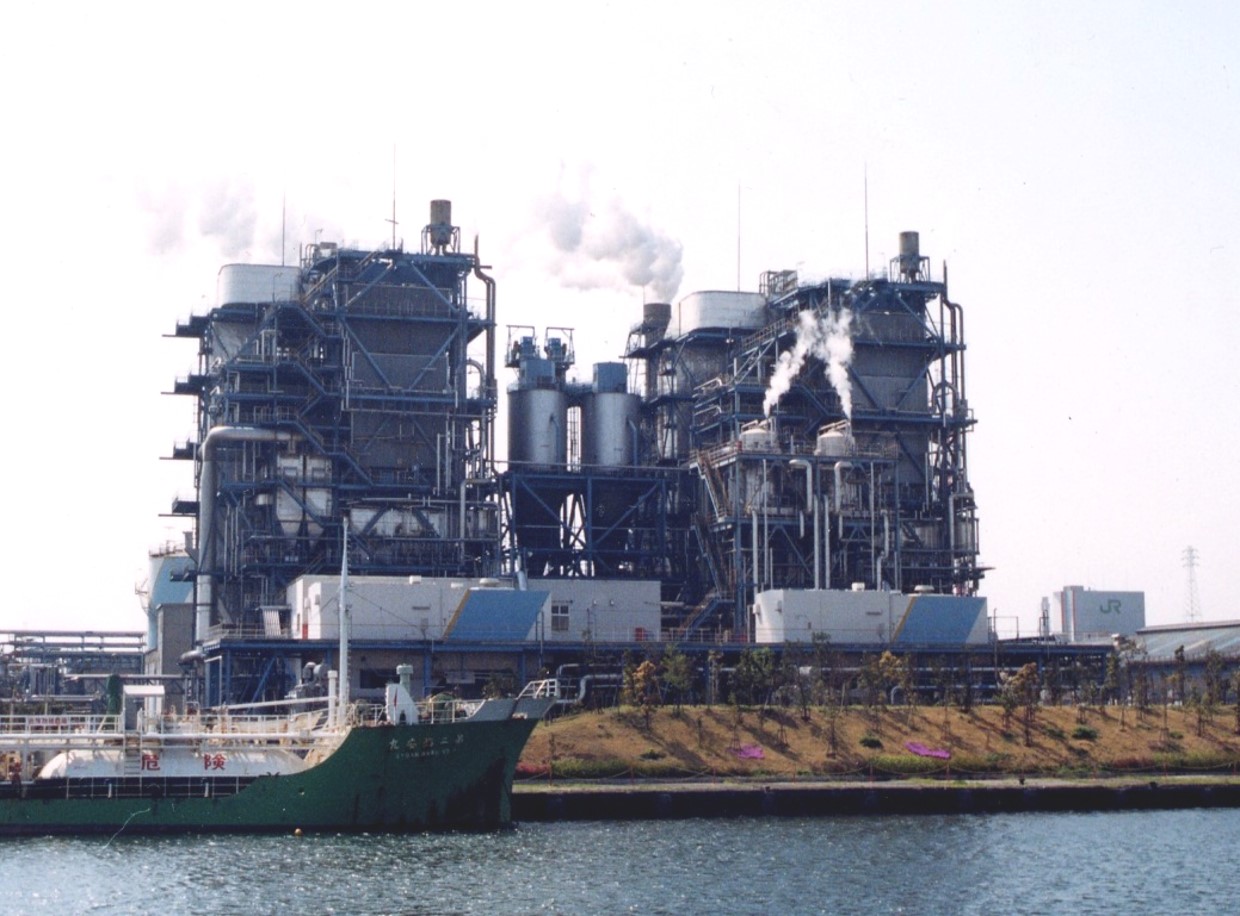October 24 2025
Resonac Corporation (President and CEO: Hidehito Takahashi, hereinafter referred to as “Resonac”) is working toward the realization of “carbon neutrality by 2050” by converting the fuel for in-house power generation facilities at one of its key sites, the Kawasaki Plant (Kawasaki City, Kanagawa Prefecture), from petroleum coke to city gas and hydrogen, thereby reducing GHG (greenhouse gas) emissions.
Today, Resonac’s plan for fuel conversion at the Kawasaki Plant was selected for the government-supported “Support Project for Energy and Manufacturing Process Conversion in Hard-to-Abate Industries*” (hereinafter “the Project”), which utilizes GX Economic Transition Bonds. Following this selection, Resonac has decided to proceed with investment in the installation of a new gas turbine at the Kawasaki Plant.
*Support Project for Energy and Manufacturing Process Conversion in Hard-to-Abate Industries (Project II: Chemicals, Pulp and Paper, Cement, etc.)
Currently, the Kawasaki Plant operates two in-house power generation systems (boilers and turbines) primarily fueled by petroleum coke. Under the Project, one system will be decommissioned and replaced with a city gas/hydrogen co-firing gas turbine*1, with operations scheduled to begin in the first quarter of 2030.
Resonac’s long-term vision targets a 30% reduction in GHG emissions (Scope 1 + 2) by 2030 compared to 2013 levels. As the largest emission site, accounting for approximately 50% of the company’s domestic GHG emissions, fuel conversion at the Kawasaki Plant is essential for achieving this goal. The Project will make a significant contribution toward meeting the reduction target.

In-House Power Generation Facilities at Kawasaki Plant
The Kawasaki Plant manufactures a wide range of products that support daily life and social infrastructure, including sodium hypochlorite for water treatment, ammonia for fuel gas denitrification at thermal power plants, and chloroprene rubber for medical surgical gloves.
By decarbonizing the electricity used in manufacturing these products, Resonac will enhance competitiveness in markets demanding high environmental performance. Furthermore, a portion of the electricity generated at the Kawasaki Plant will be supplied to Resonac’s core growth business—semiconductor materials manufacturing sites, mainly in the Kanto region. This will help meet the environmental needs of global semiconductor industry customers, contribute to GHG emission reductions across the supply chain, and further strengthen competitiveness in domestic growth industries.
Additionally, Resonac supports Kawasaki City’s “The Kawasaki Carbon Neutral Complex Plan,” which aims to achieve carbon neutrality and maintain/strengthen industrial competitiveness in the coastal area. Resonac is also a member of the Kawasaki Carbon Neutral Complex Promotion Council. The company will continue to work closely with the city, local businesses, and other council members to steadily advance the Project and contribute to building a carbon-neutral industrial complex in the Kawasaki coastal area.
【Project Overview】
Project Name: Hydrogen Power Generation Gas Turbine Installation at Kawasaki Plant
Investment Amount: ¥21.724 billion (maximum grant application amount: ¥7.083 billion)
Equipment: Gas turbine, generator, waste heat recovery boiler, package boiler
GHG Emissions Reduction*2: 254,000 t-CO₂ Start of Operation: First quarter of 2030
*1: Gas turbine output will be in the 30–40 MW class, equivalent to the electricity consumption of approximately 54,000 households, and will supply about 40% of the electricity used in manufacturing processes at the Kawasaki Plant.
*2: Scope 1 reduction. Including fuel use for external power sales under the current business scheme, total reduction is 516,000 t-CO₂/year.